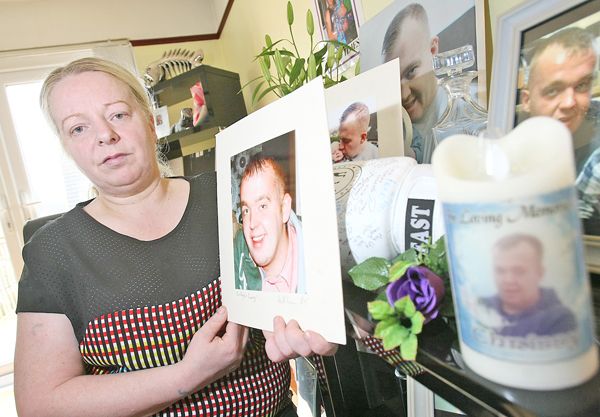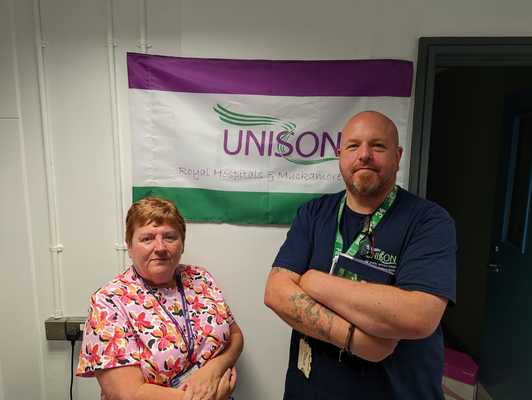A WEST Belfast mum who lost her son to drugs has welcomed a move to curb the prescription of the drug Pregabalin.
Patricia Brown, whose 26-year-old son Christopher Lavery died after taking Pregabalin, told how she "cried" after hearing that GPs have been told they should no longer initiate prescriptions of the drug.
In a letter to GPs, the Health and Social Care Board (HSCB) said Pregabalin has been removed from the North's Formulary for Neuropathic Pain due to "significant increase" in related deaths.
The HSCB also cited "risks of dependence, misuse and diversion" as contributing factors in its decision to removing Pregabalin from the formulary.
Ms Brown, who said she had "begged" doctors to take her son off Pregabalin, said the move may save other lives.
"It's too late for me now and it's a pity it didn't happen years ago as it might've saved my child, but it can save other kids," she said.
"There should be no waiting, no asking – get them off the streets."
Patients who have been prescribed Pregabalin will be "reviewed and stepped down down slowly as appropriate", the HSCB said.
Local Pharmacist Terry Maguire said he "fully supportive of the move".
"This is something we've been looking at for some time," he explained.
"Chronic pain management is a big challenge for the health service. The health service has been very reactive to try to manage pain in the best possible way and prescribing perhaps hasn't been as efficient as it should have been.
"Chronic pain is an extremely difficult condition to manage and very often its linked to patients expectations, so that can lead to patients getting multiple medicines to address the pain, and the side-effects of those by far outweigh the benefit. From that point of view I very much welcome this move."
Pregabalin – sold under the brand name Lyrica, amongst others – was among a number of problem drugs identified by the West Belfast Drugs Panel, which was set up following a spate of local drugs deaths in 2017.
Grosvenor Community Centre Manager, Tina Black, who sat on the panel, said: "I think now would be a good time to look at different pain relief strategies for people who are in chronic pain. It's as good a time as any to reassess individual cases and find better fit solution for them. It would also provide an opportunity to identify problems of misuse where they are occurring, and to cut off routes where drugs are making their way into the wrong hands.
"Where people need medication and it's the right fit for them they should still get it, but there are different pain relief strategies that can work."








